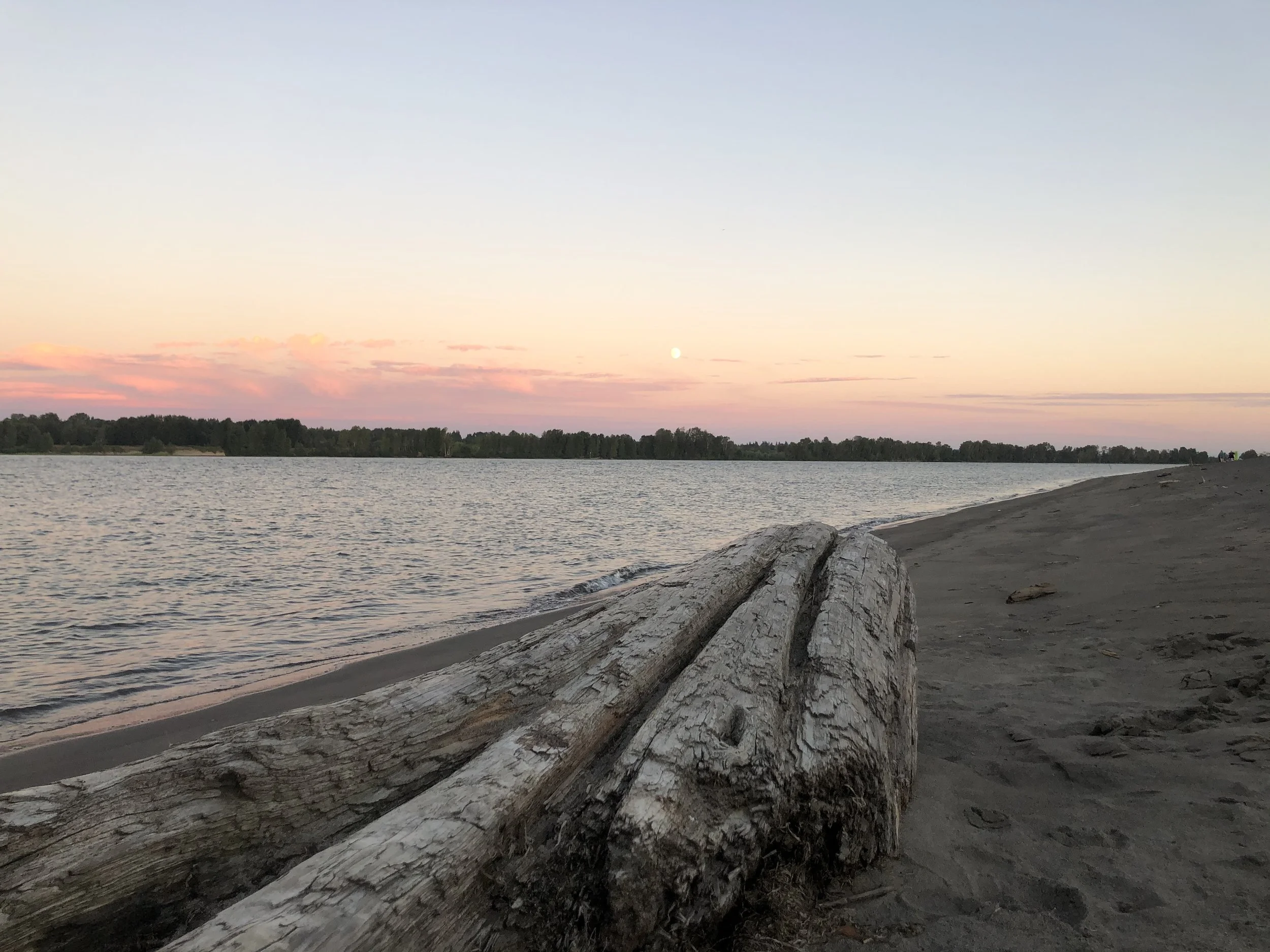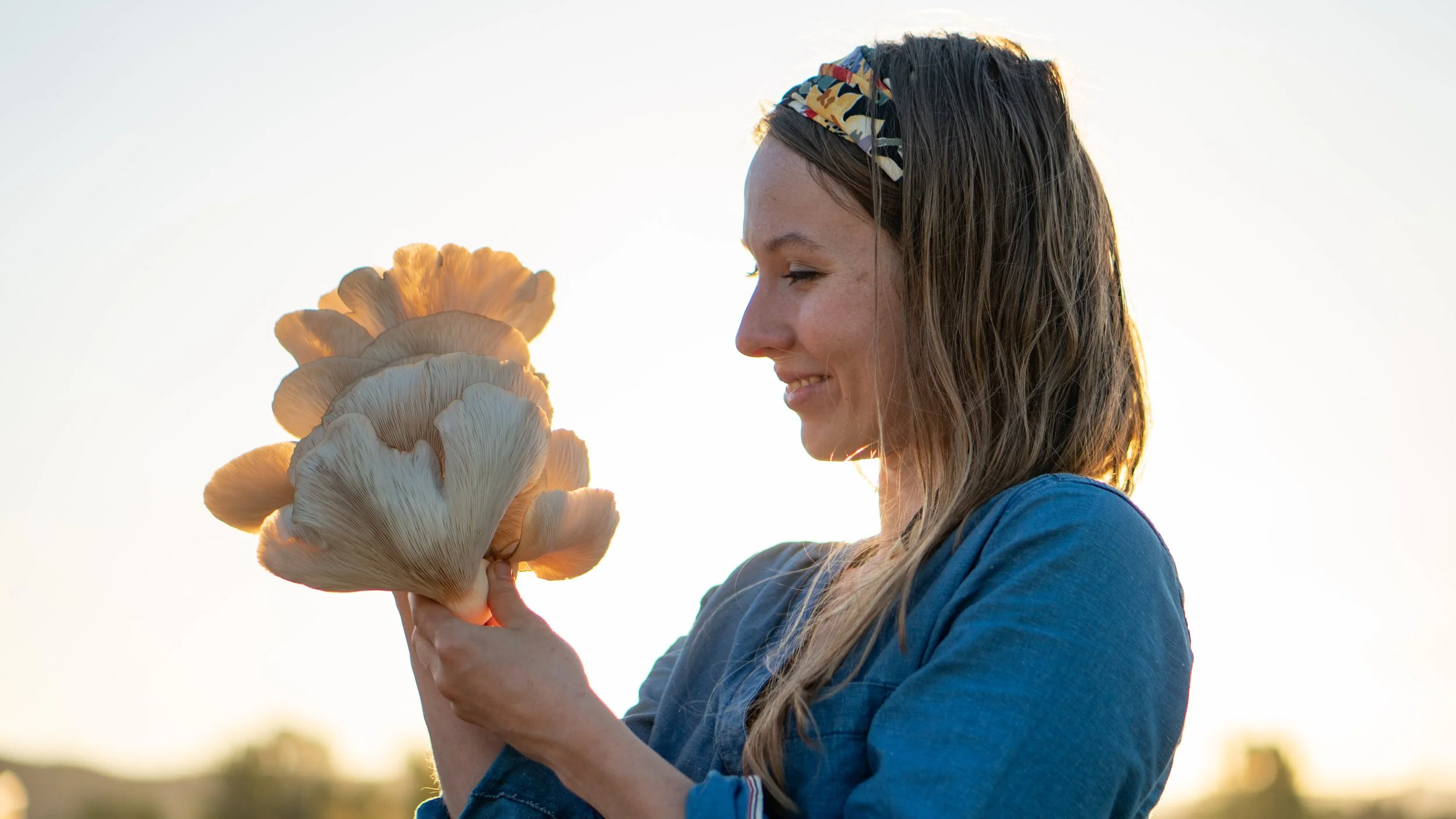THE LAND WE LOVE
WAPATO ISLAND
Wapato Island, also known as Sauvie Island, is Turtle Island’s second largest river island, located just outside Portland, Oregon. Sitting at the meeting place of the great Columbia and Willamette rivers, Wapato Island was created over millenia by earth and stone gifted from the overlooking Tualatin Mountains. Wapato Island’s wetlands are a biodiverse landscape, home to many plants, wildlife and humans.
After colonization, Wapato Island’s wetlands have been dramatically altered by settlers for cattle farming and agriculture, causing a loss of much of the island’s wetland habitat, including many of the island’s old growth Oregon White Oaks and treasured wapato stands. Despite human interference, Wapato Island still serves as critical habitat for many species, providing a seasonal resting and nesting spot along the intercontinental bird superhighway. Today, Wapato Island and its inhabitants face the stresses of conventional chemical agricultural practices. The land and water are also challenged by severe pollution instigated by industrial manufacturing along the Willamette riverbanks, with the surrounding area designated as a Superfund Site.
We recognize that this island we call our home is sacred land upon which the indigenous Multnomah band of the Chinook Nation lived before colonization. Their relationship with Wapato Island and centuries of honorable landtending made this island flourish and supported the lives of many beings. While working on this island, we seek to honor the beauty of their love for their homeland by endeavoring to repair and heal the island’s damaged soil and waters. We are deeply grateful that we currently have the honor and privilege to help tend this precious land. Above all, we desire to listen to and learn from the sacred soil and many wise beings who have known this place as home long before us.
GROUND CULTURE
OUR WORK
MICROBES + FUNGI + PLANTS
LEARNING FROM THE ANCESTRAL EARTH
We are playing and working with the wisdom of many wise ancestors — the elements, microbes, fungi and plants. We create liquid mycelium cultures, mushroom spawn, microbial compost teas, biochar, bokashi, fermented mudballs and seed balls using techniques that honor and heal the Earth. We farm microbes, medicinal plants and fungi for sharing with community, for education and for bioremediation. We intentionally tend our fungi and plants for climate-resilience, seeking to share strong genetics through thoughtful seed saving practices and through our liquid culture mycelium library. With a focus on establishing and restoring native habitat for pollinators and wildlife, we seek to share ways of growing together that reweave the magic of microbes and the power of medicinal and native plants and fungi into our lives, our gardens and our farms.
MUDBALLS
CLEANING LAND AND WATER TOGETHER
We love mudballs! Fermented mudballs are on a mission to clean and restore our water and earth. Fermented mud balls have been demonstrated to have a wide variety of regenerative applications, working as catalysts for restoring our environment, cleaning toxic waterways, improving soil health and supporting the expansion of existing mycelial networks. Mud balls like these have been successfully used around the world to clean up waterways by supporting beneficial members of the soil food web to outcompete pathogens and toxic compounds.
Clean water and healthy soil are a concern for all living beings. Now, we have a simple and efficient way of participating in the cleaning and restoration of land and water that has suffered years of damage and toxicity. These little mudballs have opened our minds to the real, practical possibilities of regeneration through their simple yet powerful methods of ancient healing. We are honored to share these precious pieces of wise and living earth with you.
OUR MUD BALL STORY
These precious little mudballs have changed our lives! We encourage you to pursue and develop a reciprocal relationship with the life forces in these fermented mudballs, too. Our relationship with the mudballs began by making them in school garden programs and in indigenous communities. Shaping earth with children and imagining the community of life within the clay awakens our collective imaginations, revealing pathways into a beautiful and healthy future for all living beings. Building mudballs in community reveals a common denominator that all people share - living soil. This ancestral wisdom reconnects us with our earth family and brings hope to the hearts of all generations.
We personally use fermented mudballs, not only to clean water and soil, but also to give thanks and honor special places. We gift mudballs to trees, waterfalls, and rivers, to city drains, to places of trauma and to sites of celebration. We believe the healing power of the mudballs is only limited by our imaginations. For us, they have been teachers in reestablishing regenerative relationships with the earth that have helped us heal trauma and support mental health. The more we learn about the ancestral life forces within the balls, the more our ancient past is shared with us, fostering restoration of both Earth and people. As we heal the land, we heal ourselves.
MUDBALLS FOR ALL!
1 mudball sold = 1 mudball shared
We want everyone to meet the mudballs! We are committed to sharing mudballs with restoration, bioremediation and community garden projects. If you have a community project and would like to work with the mudballs, please contact us.
GROUND CULTURE
OUR TEAM
Cuauhtemoc Villa
Cuauhtemoc Villa is a Taino, Aztec and Mayan living soil educator, regenerative farmer and father. He is a friend of the microbes, a student of their ancient wisdom and a teacher of their ways. For over 20 years, Cuauhtemoc has partnered with the microbes using bokashi, biochar and compost teas to grow resilient plants and bioremediate land and water. Cuauhtemoc is passionate about remembering and restoring indigenous agricultural ways and tribal ecological knowledge to honor land, ancestors and future generations. Cuauhtemoc shares these practices with people of all ages and backgrounds, through school garden programs, online and hands-on workshops, conferences and consultations with farmers and growers across the world.
Cuauhtemoc has over 30 years experience in cannabis cultivation, where his commitment to microbial life and soil health has helped him and many others grow award-winning, full spectrum medicine sustainably. He has worked as a Medical Marijuana Educator and gardener for Peace in Medicine in Santa Rosa, California and has served as judge and presenter at Emerald Cup. In 2022, one of his client farms was awarded first place at the New York Cannabis Cup. Cuauhtemoc aspires to continue his journey sharing his ancestral passion for this sacred plant through cultivation and education, sharing seeds and teachings with indigenous communities and the next generation of farmers to continue growing cannabis culture together.
Cuauhtemoc’s commitment to healing with the land has also led him to work extensively in conservation, serving for over a decade as an educator and consultant for Sonoma Ecology Center and Sonoma Biochar Initiative. Through these partnerships, he recently completed biochar production emissions testing for the US Forest Service as Lead Fire Technician using the Ring of Fire kiln. He has also partnered with the City of Portland’s Bureau of Environmental Services and Sound Native Plants to lead teams in designing and building microbial and biochar enhanced native plant bioswales for stormwater management and waterway remediation. Cuauhtemoc has also worked with tribal nations across California to expand on education for carbon sequestration.
Cuauhtemoc works on Wapato Island (Sauvie Island), where he has helped oversee a large-scale transition from conventional to regenerative farming practices, implementing microbial and biochar techniques and centering community participation and education. He is currently partnering with Sauvie Island Natives Nursery and serving as a board member on the California-based Suscol Intertribal Council, continuing his mission to build co-creative partnerships between humans and soil to heal our loving Earth.
Rae Hart
Rae Hart is a former ICU nurse turned regenerative farmer who is dedicated to community health and agriculture that honors the Earth. She is passionate about reweaving the magic and medicine of our ancestral Earth back into our everyday lives through cultivation and connection.
Rae is deeply grateful to the floral and fungal teachers that brought healing and understanding into her own life, guiding her from the halls of the hospital to the fields and waterways of Wapato Island. In 2018, she founded Ground Culture on Wapato Island with a commitment to working in partnership with the fungi to grow beautiful food, medicine and networks for healing. Over the years, Ground Culture has partnered with grassroots organizations and community projects to provide high-quality mushroom medicine and cultivation education. Rae has also served as apothecary manager, herbal clinician and mentor at the People’s Health Clinic of Portland, a free integrative health resource for those living at the crossroads of economic injustice and other systemic oppressions.
Since 2018, Rae has worked as a farmer and folk herbalist on Wapato Island, growing and crafting plant + mushroom medicines for community, sharing plant starts with local medicinal garden projects, and teaching workshops on folk medicine making, fermentation + fungi cultivation. She also manages plant propagation and care at Sauvie Island Natives Nursery, supplying native plants to pollinator gardens and habitat restoration projects.
Rae is committed to tending plants, saving seeds and culturing fungi in gratitude to the work of our ancestors and in service to future generations and all living beings. Rae is honored to be continuing her partnership with the plants, fungi and microbes through new collaborations in cultivation, education + bioremediation projects.





